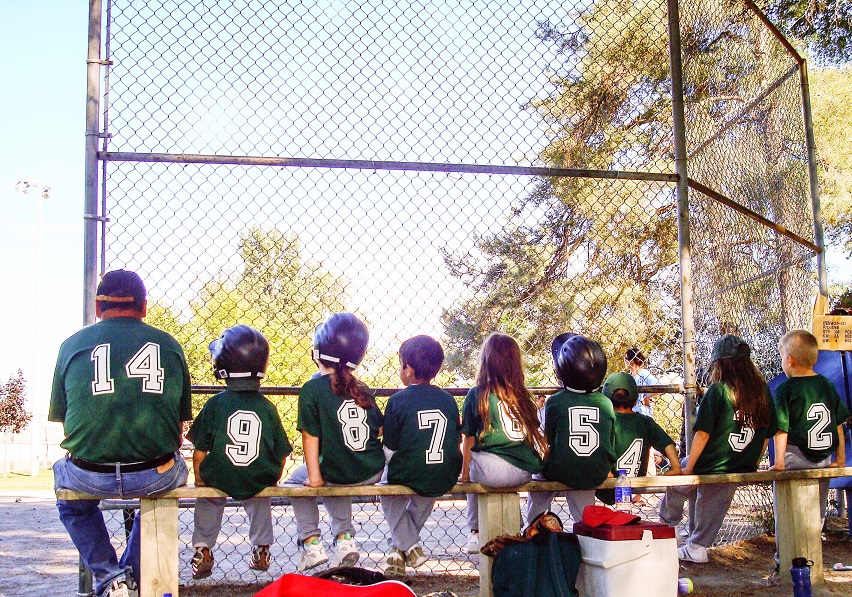Practices are essential for any youth softball team, but they can also be a drag if they’re not properly planned. It’s important to keep players engaged during practice so that they’re actually learning and improving their skills. Here are a few ways to make practices more fun and engaging for your team.
Key Takeaways
- Keep practices fun and engaging by mixing things up, providing positive reinforcement, and ending on a high note.
- Practices are important for youth softball teams because they provide an opportunity to learn and improve skills.
- Make the most of practices by planning ahead and using different activities to keep players engaged.

Why practice is important for youth softball teams
Youth softball teams that practice regularly tend to be more successful than those that don’t. That’s because practice gives players the opportunity to hone their skills and learn the game. It also allows coaches to teach strategy and develop team unity. Furthermore, practice allows players to get comfortable with their teammates and work out any kinks in communication. And finally, practicing regularly can help build confidence, which is crucial for youth players. So if you want your youth softball team to be successful, make sure you schedule regular practices. Your players and their parents will thank you for it!
How to keep practices fun and engaging
Practices don’t have to be all work and no play. In fact, they should be enjoyable for everyone involved. Here are a few ways to make practices more fun and engaging:
- Mix things up: Don’t just go through the motions at practice. Mix things up so that players are always learning something new. For example, you could start with a warm-up drill, followed by a hitting station, then some base-running drills, and so on.
- Provide positive reinforcement: Positive reinforcement is key to keeping players engaged. Make sure to praise players when they do something well. You can also use encouragement as a motivator. For example, tell players that if they hustle during the drill, they’ll get a break afterward.
- End on a high note: Always end practices on a positive note. This could mean giving out awards for hustle or performance, leading a chant or cheer, or just allowing players to have some fun. By ending on a high note, you’ll leave players feeling good about themselves and looking forward to the next practice.
As a youth softball coach, one of your primary goals should be to keep practices fun and engaging for your players. This will not only help to improve their skills, but also maintain their interest in the sport. One way to do this is to vary the types of drills you provide throughout the practice session. For example, you might start with some basic batting and fielding drills, then move on to a more game-like situation, such as a scrimmage. You can also mix things up by incorporating different types of activities, such as races or relay games. Of course, it is also important to provide positive reinforcement and encouragement throughout the practice session. By taking these steps, you can help ensure that your players have a fun and enjoyable experience.
Tips for making the most of practices
If you’re a youth softball coach, you know that practices are essential for teaching your players the skills they need to succeed on the field. But how can you make sure that your players are getting the most out of each practice session? Here are a few tips:
First, focus on teaching one or two skills per practice. Trying to cover too much ground will only overwhelm your players and lead to less retention. Second, make sure you provide plenty of opportunities for your players to put those skills into practice. Drills are great but don’t forget to scrimmage as well. Finally, take the time to Debrief with your team after each practice. This is a chance to reinforce what was learned and identify any areas that need improvement. By following these tips, you can make sure that each of your practices is productive and effective.
The importance of positive reinforcement
Positive reinforcement is a critical aspect of youth softball. It helps young players to feel good about themselves and their abilities, and it motivates them to keep practicing and working hard. When positive reinforcement is given in the form of compliments or feedback, it can be even more effective. By taking the time to give positive reinforcement, coaches and parents can help young players to develop a love for the game and a strong work ethic. As a result, positive reinforcement is an important part of youth softball.
Ending on a high note
There’s nothing quite like youth sports. The camaraderie. The competition. The feeling of hitting a home run in the bottom of the ninth to win the game. For many kids, playing youth sports is a formative experience that helps them develop important life skills. But for one youth softball team (custom softball jersey), in particular, their season came to an end on a very high note.
The team was down by two runs in the bottom of the seventh inning, and it looked like their season was about to end in a disappointing fashion. But then, something amazing happened. One by one, the batters started hitting home runs, and before long, the team had come back to take the lead. And when the final out was made, they were celebrating an improbable victory. It was a moment that those kids will never forget, and it’s a reminder that sometimes, things just work out in the end.
Conclusion
Youth softball is a great way for young players to develop their skills and learn important life lessons. But in order to make the most of the experience, coaches and parents need to focus on creating a fun and enjoyable environment. This can be done by varying the types of drills, providing positive reinforcement, and ending on a high note. By taking these steps, you can help ensure that your players have a positive and memorable experience.






